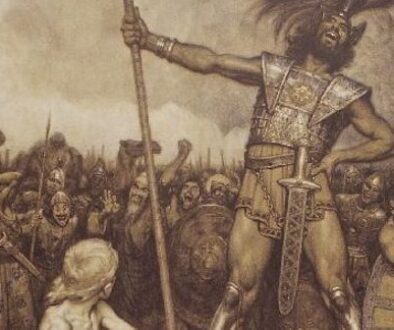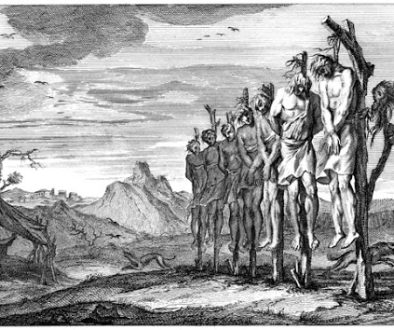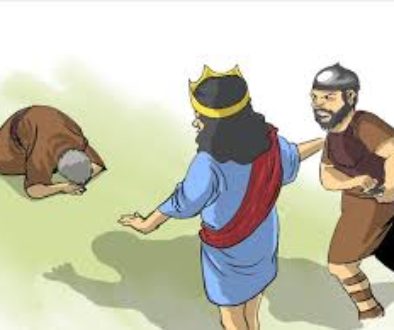Mark 2:18-22 New On Old

Today we are with Jesus when He is approached by people who notice a difference between His disciples’ behavior and that of other disciples. The difference they point to specifically is fasting. We get to hear how Jesus addresses their question.
If any of you have been with us during our study of Matthew, you know that we addressed fasting in a couple of instances. One of those times was when Matthew shared this same encounter with us. I’m going to post links to the two instances that Jesus deals with fasting in Matthew. I believe those two blog entries sum up all I know about fasting. The first is when Jesus is teaching His sermon on the mountain top and deals with fasting. The second is Matthew’s account of today’s story.
When I was reading this lesson earlier today, I was more drawn to the second part of Jesus’ discussion with those questioning Him. This is where He was talking about old and new cloth and old and new wineskins. I don’t know if I was drawn here because I didn’t want to deal with fasting again, in part due to my own food issues, or if God was leading me here. When I went back and read the two above posts I noticed that I had talked about the second part while talking about Matthew’s telling of the story. So I have been struggling as to what to say about today’s reading, other than “look back at what we have already covered.”
While contemplating this, I believe God gave me a question and an answer to focus on today. The question is: How did Jesus get from the topic of fasting to new and old cloth and wineskins? What do they have to do with one another?
The answer I received has to do with the practices of the old covenant and the new covenant. Several of the actual practices of the old covenant are still relevant in our new covenant relationship, BUT they are also new in the new covenant. They are not new in the sense that they have never been done before, but new in the purpose or motivation for them being done. And because their purpose or motivation is different, the practice is different too and thus becomes new for the new covenant.
A covenant is not the same as a contract. In a contract if one party breaks the agreement, the other party is free of it and the original agreement is null and void. In a covenant, if one party breaks the agreement the other party is still bound by their promises in the agreement.
When God gave Moses the law, God and Israel entered into a covenant relationship based on everything contained in the law. Let’s take the practice of bringing offerings to God. The law included prescribed offerings for EVERYTHING! They ranged from a “wave offering” for grain to “turtle doves” for the birth of a baby. They covered everyday things to special occasions. Each and every offering was given in thanks for something God had provided, a request for protection or provision, or atonement for sin. All of these offerings were a legal requirement. If Israel stopped offering them, God was not bound to provide for them or protect them. In fact, the promises of God were that disasters would then befall them for their breaking the law. Check out the blessings and curses in Deuteronomy 28. Israel agreed to this covenant with God.
Under the new covenant, that was established through Jesus’ work on the cross, giving takes on a new meaning. We still give but we give with a cheerful heart to support the work of the ministry. Not out of an obligation under a prescribed format and formula, but out of love for God and a sincere desire to see His Kingdom grow. Check out Got Questions.org on the subject of tithing/giving.
So because Jesus jumped from fasting to old and new covenant differences, I’m assuming there is a difference in that practice too. Under the old covenant, there was at least one prescribed fast required in the law. This was done on the Day of Atonement. I’m not certain of the reasons for any other fast practiced by John’s or the Pharisee’s disciples, but I’m assuming that they carried the same legal requirements in their practice and framework. While the fasting that Jesus stated His disciples would be doing, “after the bridegroom is no longer with them” is done out of different motives.
As I understand fasting, it is a spiritual tool to help one focus more intently on God’s direction for their life. Jesus said it was to be done differently than what the Pharisees did; specifically it was to be done privately between the faster and God and not as a public display of “spirituality.”
So out with the old legal requirements for everything that happens in our lives. And in with the new focus on life with Jesus’ love as our center. Jesus fulfilled every part of the law so we could be freed from it. We now are covered under His blood and His righteousness. The law has no more hold on us.
Lord Jesus, thank You for doing what I could NEVER do. I could never live by all the regulations set out in the law. Neither could anyone else. Some tried harder than others, but the truth is, we ALL fall short. You said so in Your word. That is the reason why we needed You. You took our place. You took our punishment. And You gave us a new and better covenant. A covenant forged in Your blood. One that, no matter how many times we fail, You will remain faithful to Your promises.
Thank You for changing the focus of the old practices and making them new. A new reason to give. A new reason and way to pray. A new reason and way to fast. All of these things were changed and made new too. None of them were done away with, but redeemed and changed to fit the new promise You paid for. Keep me ever grateful.




